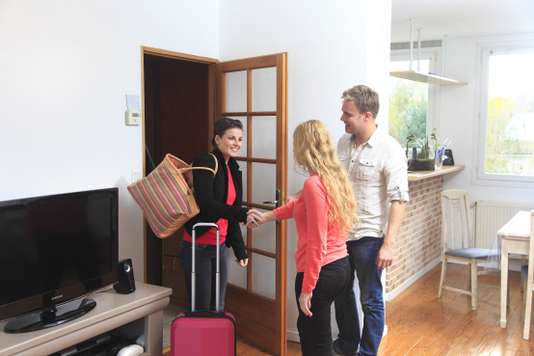
The act Elan (Evolution of housing, spatial planning and digital) should soon be enacted, the parliament has definitively approved the text on 3 October. It strengthens the framing device of the short-term rental type Airbnb, by providing heavy sanctions, both for the owner as for the Internet sites that do not meet their obligations.
A count of the number of nights rented
Since the adoption of the act for a Republic digital October 7, 2016, cities have the opportunity to put in place a service-line registration of short-term leases providing for the immediate issue of a registration number. The law makes compulsory the indication of this number on all rental advertisements, including those published online.
Furthermore, it states that when the accommodation rental is the main residence of the advertiser, the sites must put in place a count of the number of nights rented through them and block ads in excess of 120 days per year (beyond this threshold, the housing is no longer the principal residence and other formalities are compulsory to be able to rent it).
Also read :
Sub-rent housing, a risky activity
A small score of cities has put this service in place, among which are Paris, Bordeaux, Lyon, Nice, Cannes… But, in the absence of sanctions, these obligations were not or poorly observed, not so much the advertisers by sites… Only Airbnb has put in place a mechanism to block ads, but only in the first four districts of the capital !
To correct the shooting, the law Elan inscribed in marble the prohibition of renting his principal residence more than 120 days per year in cities that have implemented an online service for the registration of short term rentals. With, the key, to a maximum fine of € 5 000 in the absence of a number of registration and € 10 000 when the home is rented more than 120 days per year or if the owner refuses to convey to the municipality, if requested, the count of the number of days of rental.
Maximum fine of 12 500 euros
For their part, the websites may incur a maximum fine of 12 500 euros per housing unit in the absence of any mention of the registration number on the ad. In case of refusal to block ads in excess of 120 days per year or pass on to cities the count of nights reserved through them, they are liable to a maximum fine of eur 50 000 per housing unit.
Also read :
Donors are not the ones we believe in
Anticipating the adoption of the act, the Internet sites represented by their trade union was signed in June an agreement with the government. They undertake to put in place, by 31 December, an automatic tool blocking ads as soon as the threshold of 120 days per year has been achieved and to provide a device which should allow to identify the ads ” doublonnées “. This is to avoid that the advertisers do not circumvent these rules by changing their ad site after they have reached their quota of 120 days.







